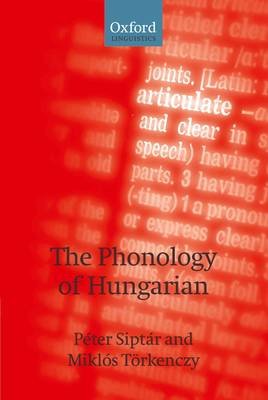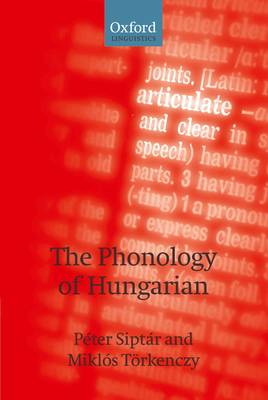
- Retrait gratuit dans votre magasin Club
- 7.000.000 titres dans notre catalogue
- Payer en toute sécurité
- Toujours un magasin près de chez vous
- Retrait gratuit dans votre magasin Club
- 7.000.0000 titres dans notre catalogue
- Payer en toute sécurité
- Toujours un magasin près de chez vous
Description
This is the first comprehensive account of the segmental phonology of Hungarian in English. Part I introduces the general features of the language. Part II examines its vowel and consonant systems, and its phonotactics (syllable structure constraints, transsyllabic constraints, and morpheme structure constraints). Part III describes the phonological processes that vowels, consonants, and syllables undergo and/or trigger. The authors provide a new analysis of vowel harmony as well as discussions of vowel length alternations, palatalization, voice assimilation, and processes targeting nasals and liquids. The final chapters cover processes conditioned by syllable structure, and briefly describe a selection of surface phenomena. This authoritative account of the sound pattern of this unique language will interest phonologists and advanced students throughout the world.
Spécifications
Parties prenantes
- Auteur(s) :
- Editeur:
Contenu
- Nombre de pages :
- 338
- Langue:
- Anglais
- Collection :
Caractéristiques
- EAN:
- 9780199228904
- Date de parution :
- 06-09-07
- Format:
- Livre broché
- Format numérique:
- Trade paperback (VS)
- Dimensions :
- 155 mm x 231 mm
- Poids :
- 521 g

Les avis
Nous publions uniquement les avis qui respectent les conditions requises. Consultez nos conditions pour les avis.






